New York, NY (April 19, 2021) – The New York Foundling is proud to announce the opening of a first-of-its-kind training and resource center in partnership with New York City’s Department of Health and Mental Hygiene.
The Strong Families and Communities Training Center (SFC Training Center), which officially opened its doors in October of 2020, provides workshops for front-line social service workers across three core areas: training and technical assistance, implementation support for evidence-based practices, as well as coalition building and community engagement. These areas equip, support, and train both service providers and community members with best practice techniques and date-driven approaches to positively impact the communities they serve across The Bronx, Brooklyn, Manhattan, Queens, and Staten Island.
The Center is grounded in the Communities that Care organizing model, an evidence-based framework that elevates community voice to see strengths in a community and have community picked services. In the difficult time of COVID, a key goal of the SFC Training Center is to train CBO family-serving staff in evidence-based parenting models to better serve parents, communities and families who are experiencing a great deal of stress.
“We are proud to be able to share our evidence-based best practices with social service workers and community organizers across other New York City-based agencies and organizations,” said Elizabeth Tremblay, Assistant Vice President at The Foundling and Director of The Foundling’s Strong Families and Communities Training Center.
“Opening The Strong Families and Communities Training Center in partnership with the Department of Health and Mental Hygiene is a critical step toward ensuring that The New York Foundling’s incredible work reaches every corner of the city. Importantly, we are thrilled to be building on The Foundling’s 150-year-long legacy of helping communities thrive and reach their full potential,” added Shannon Ghramm-Smith, Senior Vice President of Child Welfare and Behavioral Health at The New York Foundling.
The SFC Training Center’s unique approach includes open trainings that are based on community feedback and listening sessions to discuss training needs and topics to better serve families. Featuring expert peers with years in the field, the SFC Training Center adapts their programming to ensure the information is applicable and helpful for the peer workforce.
“The Department of Health and Mental Hygiene is proud to partner with The New York Foundling on this important effort,” said Dr. Myla Harrison, Acting Executive Deputy Commissioner of the Division of Mental Hygiene at the NYC Department of Health and Mental Hygiene. “Strengthening the capacity of front-line staff to deliver high quality services to parents/caregivers and families in our communities will help promote children’s mental health and well-being.”
The SFC Training Center, which aims to train and upskill workers outside of The Foundling’s own staff, marks a new chapter for the organization’s robust set of social services helping children, families and people with developmental disabilities. By equipping practitioners from other agencies and organizations with their time tested and proven approaches to social services, The Foundling continues to demonstrate its strong commitment to broadening its impact on communities across the city outside of just its own services. To date, The SFC Center has trained over 200 care workers across various agencies and organizations in New York City.
About The New York Foundling
At The New York Foundling, we trust in the potential of people, and we deliberately invest in proven practices. From bold beginnings in 1869, our New York based nonprofit has supported a quarter million of our neighbors on their own paths to stability, strength, and independence. The New York Foundling’s internationally recognized set of social services are both proven and practical. We help children and families navigate through and beyond foster care. We help families struggling with conflict and poverty to grow stronger. We help individuals with developmental disabilities live their best lives. And we help children and families access quality health and mental health services core to building lifelong resilience and wellbeing.
For more information about The New York Foundling, please visit www.nyfoundling.org.



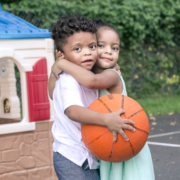
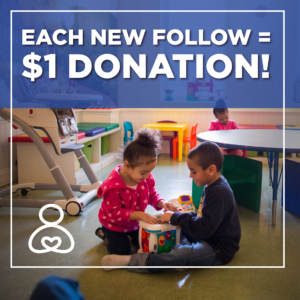 Throughout April, we’ll be posting informative content on ways to recognize and prevent abuse and neglect. Not only will following The Foundling on social media allow you to hear about our latest news and updates, but you’ll help The Foundling secure additional funds to support children in our community through our $1 matching donation!*
Throughout April, we’ll be posting informative content on ways to recognize and prevent abuse and neglect. Not only will following The Foundling on social media allow you to hear about our latest news and updates, but you’ll help The Foundling secure additional funds to support children in our community through our $1 matching donation!*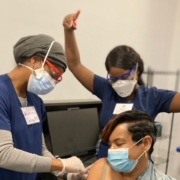
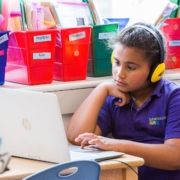

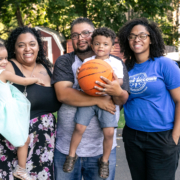
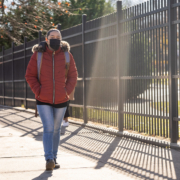
 NYF
NYF